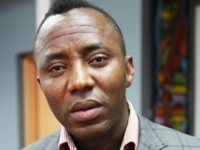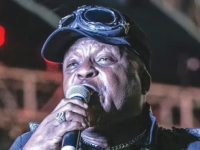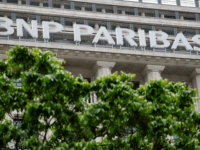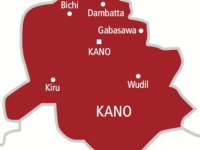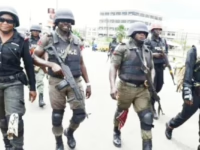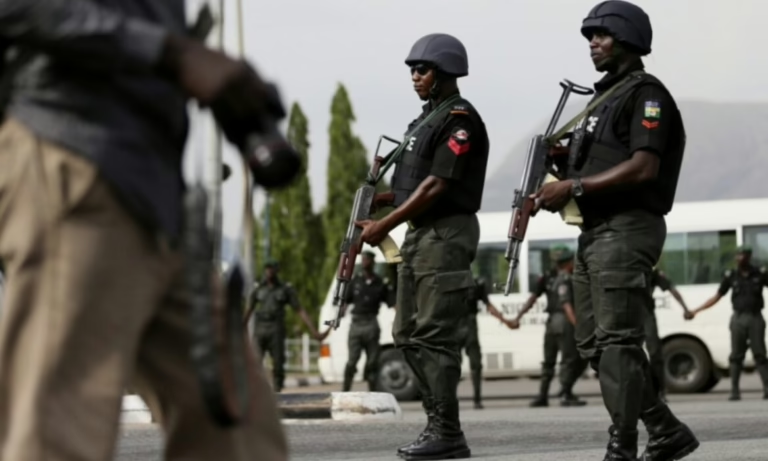On Monday morning, residents and commuters throughout the Federal Capital Territory (FCT) found themselves immobilized due to an extensive security presence and roadblocks strategically placed across Abuja. These measures were implemented ahead of the anticipated ##FreeNnamdiKanuNow demonstration, resulting in severe traffic congestion that brought movement both into and within the city to a near halt.
At the time of this report, vehicles approaching from areas such as Nyanya, Karu, Mararraba, Masaka, Jikwoyi, Karshi, and Orozo remained stuck in prolonged traffic jams, with many drivers reporting delays exceeding three hours without any progress toward the city center.
Comparable gridlocks were also noted along Dei-Dei, Mpape, Dutse, and Kubwa roads, where additional security checkpoints intensified the already chaotic situation.
The disruptions stemmed from a planned protest organized by Omoyele Sowore, publisher of Sahara Reporters, alongside other activists calling for the release of Nnamdi Kanu, the detained leader of the banned Indigenous People of Biafra (IPOB). The group had earlier publicized their intention to march to the Presidential Villa to press their demands.
Many stranded motorists expressed their frustration, condemning the barricades as an unfair hardship imposed on innocent citizens. At the heavily congested Nasarawa/Nyanya boundary checkpoint, civil servants, parents, and school bus drivers lamented being stuck for two to three hours in the standstill traffic.
Parents transporting their children to school voiced particular distress over their inability to either continue their journey or return home.
One commuter, Mr. Ebenezer Ulomi, recounted, “I had no choice but to park my car, unload my children, and hire a motorcycle just to get them to their schools. Should our children’s education be disrupted because of a protest?”
He added, “If protesters want to go to the Villa, why should those of us living on the outskirts suffer? Are the authorities worried about people being brought in for the protest this morning? This feels like collective punishment, and I believe justice will prevail.”
At the Nyanya, Jikwoyi, and Karshi routes, some civil servants were observed walking home after failing to find public transport to their destinations.
Mrs. Akinola Oluwatosin, a commuter visibly upset by the situation, shared, “I left my house at 5:30 a.m., yet I haven’t moved an inch. It’s unfair to punish everyone for the actions of a few. The authorities know where the protesters are; why not focus on them instead of inconveniencing the entire city?”
Pregnant commuter Mrs. Aishat Abdul, seen at Redeemed Junction in Nyanya, revealed her plans to reach a clinic in Asokoro by motorcycle were thwarted as even motorbikes were caught in the gridlock.
Fourteen-year-old Mariam Adamu, a student at Government Secondary School in Karu, described her ordeal: “I’ve been stuck in traffic since 6:00 a.m. I’m exhausted and hungry. My school gate will close soon, and I’m worried I won’t make it in time.”
Malam Usman Bako, employed at the Ministry of Agriculture, expressed his dismay after abandoning his vehicle following a two-hour standstill. “This security approach disregards the working population. Paralyzing the city because of a protest is not a solution; it only breeds frustration among the people.”
During a visit to MOPOL junction, NNPC, and Kugbo Bus Stops, tensions escalated as more commuters abandoned their vehicles and opted to walk.
Additionally, our correspondent noted that many shops and open-air vendors at Nyanya and Karu Markets, typically bustling by 9 a.m., remained closed, their operations disrupted by the traffic paralysis and the resulting lockdown.




